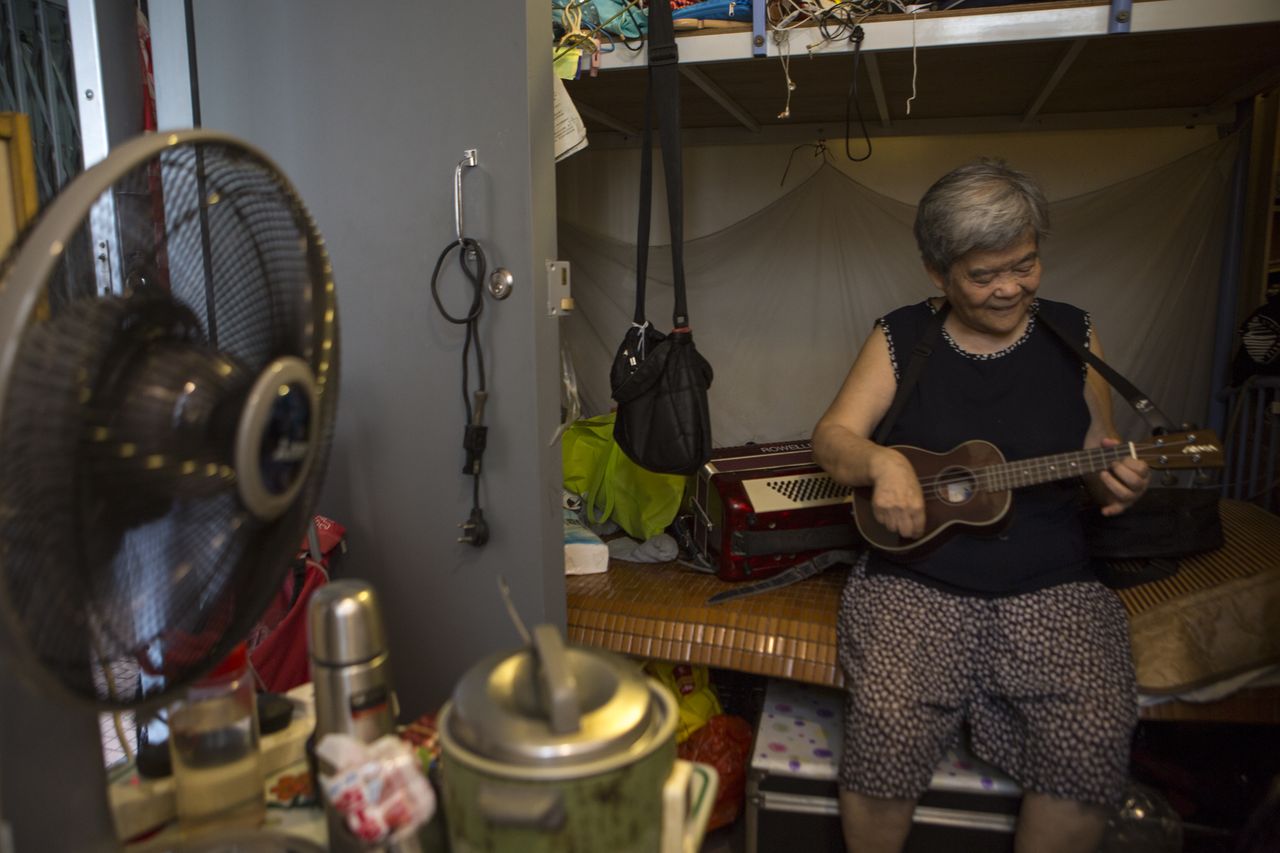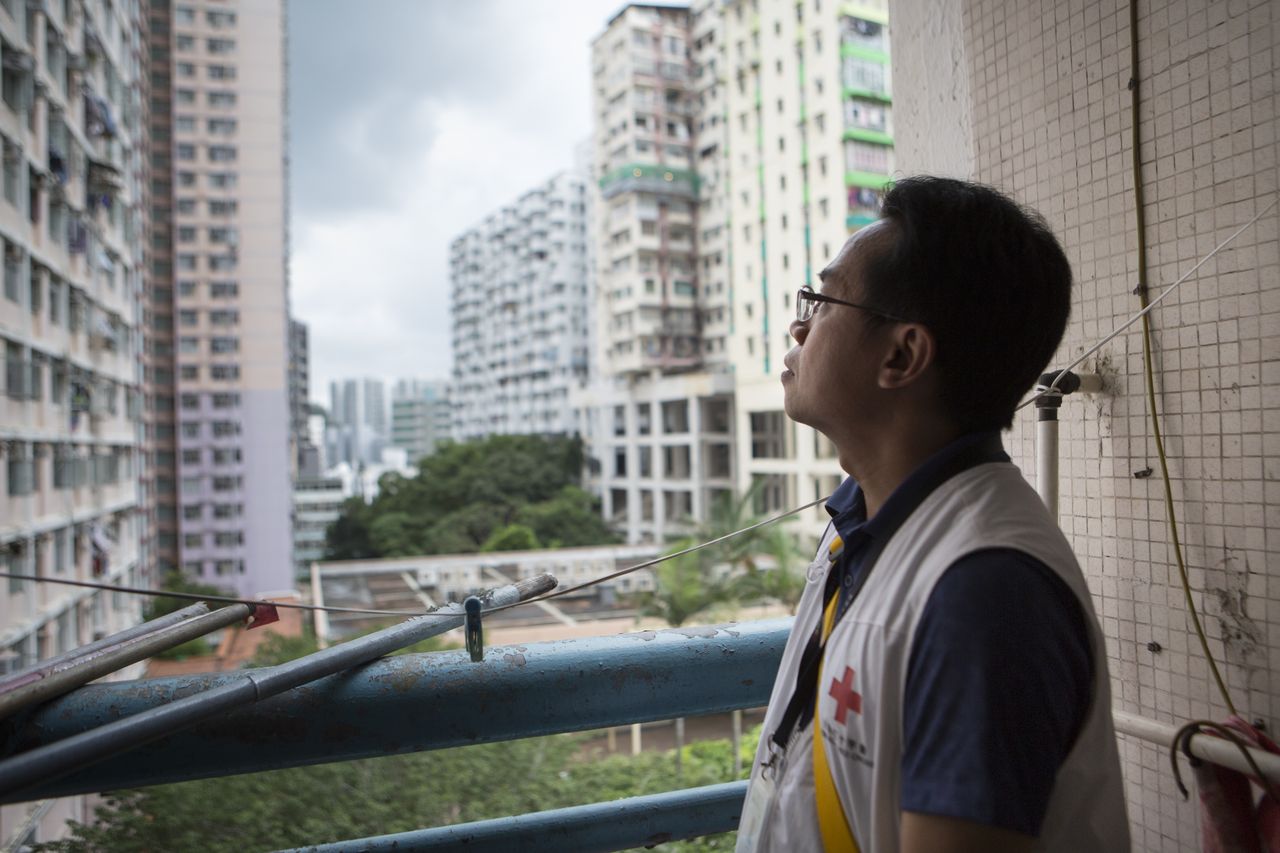Here and now: who is paying the price?
“Hot temperatures are dangerous for elderly people,” explains Irene Lui Sau-lan, manager of the Local Emergency Service of the Hong Kong Red Cross. “Many of them live alone and cannot count on the support of family. Often this situation is made worse when they live with chronic illnesses. Heat also affects their everyday life, reduces the time they can spend outdoor and makes them feel lonely”.
The effects that hotter temperatures have on vulnerable people can be seen in Kwun Tong, Hong Kong’s hottest district and home to the city’s highest proportion of low-income and elderly people. A large number of people here are very vulnerable to heat, but have little means to protect themselves.
“I go to the park early in the morning,” says Shuk-man Wong, an 82-year-old widow who lives alone in an apartment building of the Tsui Ping Estate in Kwun Tong. “I cannot do that during the day when it gets hot, so I come here at 5 or 6 am. I can exercise, talk with other people, but especially I can play my Erhu [a two-stringed bowed instrument]. My house gets too hot during the day and I can only play for a little while because I must keep my door wide open to let air circulate. But then the neighbours complain and I must stop.”
It’s even too hot to cook inside the apartment. “I cook here in the hallway,” she says. “I must bring my rice cooker out here. And I eat here every day. Because it is cooler here, I am suffocating inside”.
In Shuk-man’s tiny 8m2 flat, the only (small) window is blocked by her belongings — after all, she has little room to choose where to stacks her things. Originally from Fujian, China, Shuk-man has been living in Hong Kong for over 30 years: “Yes, Hong Kong is getting hotter,” she explains, adding that on some days, it keeps her from doing much of anything. The worst was the day they call ‘the great heat’ when it reached over 35 degrees “For the day of the ‘great heat’, on 23 July 2018, I did not dare to go out, but then I felt lonely. So I finally went to the elderly community centre”.
Catherine Wong Kuk-ching, senior manager of the True Light Villa District Elderly Community Centre knows situations like Shuk-man’s very well. “Elderly people, especially when leaving alone, can suffer badly from the consequences of heat. To protect themselves, they must stay at home, but this is risky as they can start to feel very isolated, and in the worse cases, develop depression. Also, many people do not use air conditioning because it is too expensive for them. So community centres can become people’s (second) homes. They come here to talk with their friends, and for the programmes we have. But of course, they also like to cool down in the air conditioning we have at the centre.”
 Red Cross Red Crescent magazine
Red Cross Red Crescent magazine 







 Tech & Innovation
Tech & Innovation Climate Change
Climate Change Volunteers
Volunteers Health
Health Migration
Migration